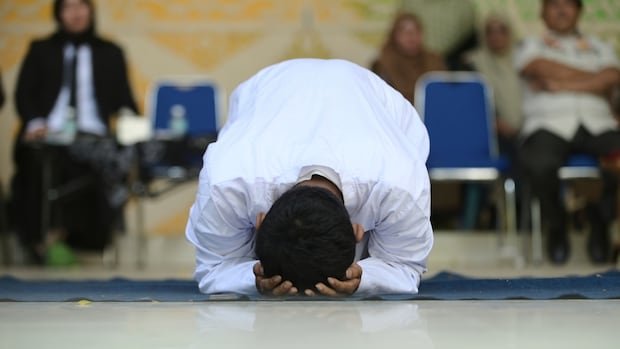In Indonesia’s conservative Aceh province, two men endured public caning on Tuesday following a conviction by an Islamic Shariah court for breaching Islamic law through hugging and kissing, actions deemed potentially leading to prohibited sexual relations. The caning took place at Bustanussalatin city park in Banda Aceh with around 100 spectators present. The men, aged 20 and 21, received numerous lashes with a rattan cane on their backs by individuals in robes and hoods.
Aceh sanctions up to 100 lashes for moral transgressions like homosexual acts and unmarried sexual relationships. Caning is a common punishment in Aceh for offenses such as gambling, alcohol consumption, women in tight attire, and men skipping Friday prayers. The court sentenced the men to 80 lashes each after religious authorities reported catching them engaging in hugging and kissing, deemed as sexual acts, in a public park bathroom.
Apart from the two men, eight others faced public caning on Tuesday for charges of adultery and gambling. The men were apprehended in April at Taman Sari city park in Banda Aceh following reports from residents who spotted them entering the same park bathroom. The police discovered them kissing and hugging inside. Prior to the park encounter, the duo had connected through an online dating application.
Since implementing Islamic law in 2006, Aceh, being the sole Indonesian province practicing Shariah law, has witnessed four prior canings related to homosexuality. While Indonesia’s national criminal code does not regulate homosexuality, the central government lacks authority to overturn Shariah law in Aceh. Despite past pressure to revoke a law advocating stoning for adultery, the central government allowed Aceh to maintain its legal system.
In 2015, Aceh broadened its Islamic regulations and penal code, extending Shariah law to non-Muslims, constituting about one percent of the province’s populace. In February, two other men faced public caning at the same Aceh park for engaging in sexual activities. Although a coalition of human rights organizations sought a Supreme Court review of Aceh’s caning regulations in 2016, the plea was dismissed.
Maidina Rahmawati, from the Institute for Criminal Justice Reform in Indonesia, highlighted that caning, a form of corporal punishment, contradicts national laws and human rights principles in Indonesia. Rahmawati attributed the policy’s enforcement to evolving political dynamics and the need to support Aceh’s Shariah-based governance. Amnesty International condemned the caning, labeling it as state-sanctioned discrimination and cruelty, emphasizing that consensual adult relationships should not be criminalized.

